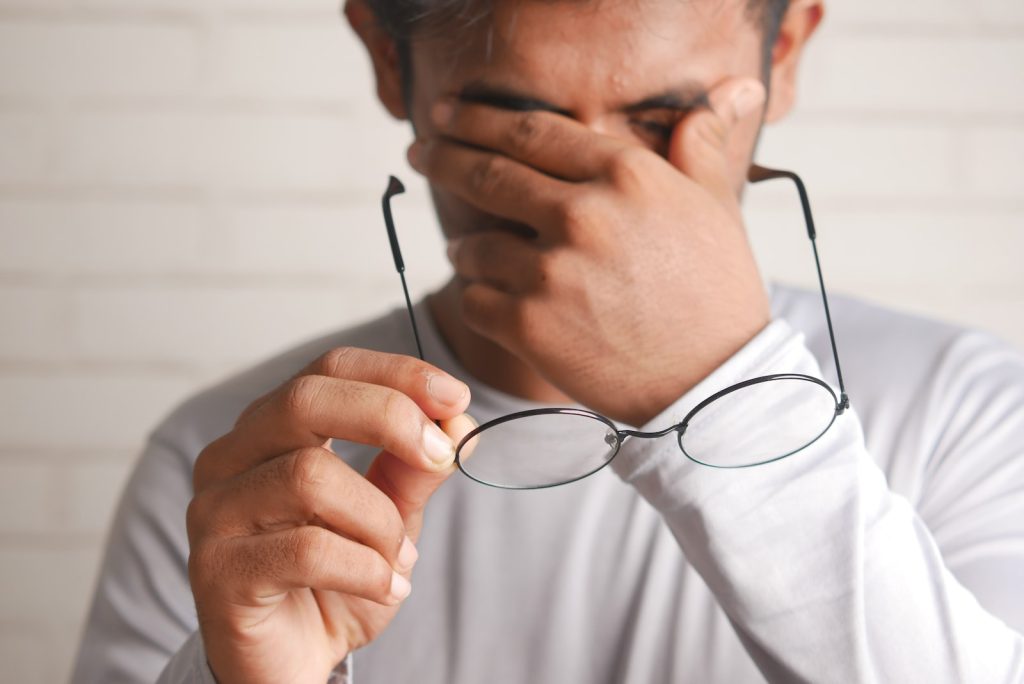Allergies, which are caused by an overactive immune system, can be annoying, uncomfortable, and even debilitating. But did you know that allergies can also cause depression? It may seem unlikely, but allergies can have a significant impact on mental health.
People with allergies may have difficulty functioning in their daily lives due to the physical symptoms they experience. This can lead to a feeling of helplessness, hopelessness, and even depression. Both allergies and depression are two common conditions that can have serious consequences on a person’s life. While it is not yet known if there is a direct link between allergies and depression, there is evidence to suggest that the two are intertwined in some ways.
Can allergies cause depression? In this article, we will explore the relationship between allergies and depression and discuss the potential for allergies to cause depression. If you suffer from any allergy symptoms, make sure you check with a board-certified allergy specialist who can help you with diagnosis and an adequate treatment plan, click here to learn more.
1. Physical discomfort
The first link between allergies and depression is the physical discomfort that can accompany allergies. Allergies occur when a person’s immune system reacts to a foreign substance, such as pollen, pet dander, dust mites, or certain foods. The body reacts to these by releasing histamines, which cause the symptoms of allergies, such as sneezing, runny nose, itchy eyes, and coughing. Other symptoms can include skin irritation, such as hives or rashes and, in some cases, allergies may lead to difficulty breathing, which can be a symptom of a more serious condition. These symptoms associated with fatigue can lead to a person feeling overwhelmed and frustrated. Allergic reactions can also cause inflammation in the body, which can affect the regulation of hormones and neurotransmitters, such as serotonin. Low levels of serotonin are associated with depression, so it’s possible that allergies can contribute to the development of mood disorders. Additionally, allergies can also cause sleep disturbances which can lead to a lack of restful sleep and further feelings of depression.

2. Psychological effects
Another link between allergies and depression is the psychological effects of allergies. People who suffer from allergies often feel like they are constantly fighting against their bodies, and this can lead to feelings of hopelessness and worthlessness. With allergies, it can feel like no matter what you do, there is no way to escape the symptoms and this can lead to feelings of anxiety and depression. Some studies have shown that people with allergies are more likely to suffer from depression than people without allergies. Although allergies can be a contributing factor to depression, it is important to remember that this is a complex condition with many causes: genetic factors, environmental factors, and even lifestyle factors can all have a toll on our mental health. It is important to identify the root cause of a person’s depression so that the appropriate treatment can be provided by a specialist.
3. Social and financial factors
Finally, allergies can lead to social and financial issues that can also contribute to depression. Allergies can make it difficult to participate in day-to-day activities such as going to the movies or eating in restaurants, and this can lead to feelings of isolation and loneliness. Additionally, the cost of an allergy treatment can vary from case to case and this can become a source of stress and depression for some people.
Check with your doctor or a mental health professional for treatment advice. This can vary based on the situation and include medications, psychotherapy, lifestyle changes, and stress management. Psychotherapy can help to identify and address the underlying causes of depression and lifestyle changes can include avoiding triggers, getting enough sleep, and eating a healthy diet. As far as stress management is concerned, this can help to reduce anxiety and depression symptoms.

Conclusion
Allergies and depression are two common and sometimes linked conditions. Allergies can lead to physical discomfort, psychological distress, and financial and social issues, all of which can contribute to feelings of depression. While allergies and depression may be linked in some ways, it is important to note that allergies do not necessarily cause depression. If you are suffering from both allergies and depression, it is important to seek help from a mental health professional and talk to experienced allergy associates about your symptoms to see if there are any steps you can follow to reduce them.

